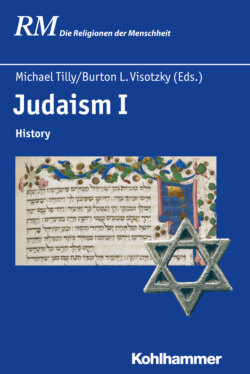Читать книгу Judaism I - Группа авторов - Страница 84
На сайте Литреса книга снята с продажи.
9.2 Diaspora Uprising 115–117 CE
ОглавлениеAnother set of Jewish rebellions against Rome, known collectively as the »Qitos War« raged between 115 and 117 CE, a decade and half before the Bar Kokhbah uprising. The war is likely named for Lusius Quietus, the Roman general credited with putting down these revolts. He became governor of Syria Palestina as a reward. We must rely on meager and difficult sources: Roman historian Cassius Dio, Christian historian Eusebius, and hints in rabbinic sources and elsewhere.
While there is little evidence that diaspora communities were actively involved in the Judean unrest of 66 CE, a generation later, Greek speaking Jews across the empire rose under Trajan (98–117 CE), emboldened perhaps by the emperor’s extended military campaigns in the distant East. A series of outbreaks of ethnic violence took place in Jewish communities across a broad swath of the Greek speaking Mediterranean: Egypt, Cyrenaica (the coastal region of modern-day Lybia), Cyprus, and also in Mesopotamia.31 Cassius Dio reports that Jews massacred thousands of their gentile neighbors. It seems that messianic hopes had turned up the heat on simmering economic and cultural tensions.
In a chronicle of Trajans’s eastern campaigns, Cassius Dio writes:
Meanwhile the Jews in the region of Cyrene had put one Andreas at their head and were destroying both the Romans and the Greeks. They would cook their flesh, make belts for themselves of their entrails, anoint themselves with their blood, and wear their skins for clothing. Many they sawed in two, from the head downwards. Others they would give to wild beasts and force still others to fight as gladiators. In all, consequently, two hundred and twenty thousand perished. In Egypt, also, they performed many similar deeds, and in Cyprus under the leadership of Artemio. There, likewise, two hundred and forty thousand perished. For this reason, no Jew may set foot in that land, even if one of them is driven upon the island by force of the wind, he is put to death. Various persons took part in subduing these Jews, one being Lusius, who was sent by Trajan.32
While the gruesome and exaggerated rhetoric here masks actual events (note the barbarity attributed to the crime of making Romans fight as gladiators), Dio reveals that the revolts were not minor local skirmishes; they left an impact on the region. Jews, he says, were henceforth banned from setting foot in Cyprus, even if shipwrecked there.
